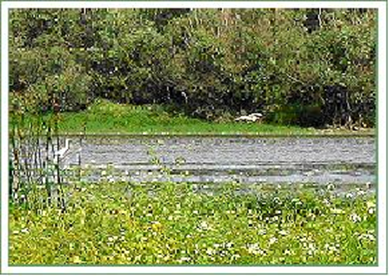| Attachment | Size |
|---|---|
| n12_-_lake_restoration.pdf | 779.68 KB |
Ongoing climate change affects lake water quality through several mechanisms, including (1) changes in external and internal nutrient loads, (2) increased frequency of extreme events such as hurricanes, (3) temperature-induced changes in biota and biotic interactions, and (4) fluctuations in water levels.
Lakes function as important water retention systems, capable of storing water for flood control and providing water for multiple uses such as irrigation, water supply, fisheries and tourism. They are also important carbon sinks and vital habitats for many species of plants and animals, including wading birds.
However, many lakes have been drained in the past to make land available for agriculture or have been neglected, leading to silting.
Restoring these lakes means improving their structure and functionality, particularly in areas where they have previously been drained.

Pochina Lake after restoration (RO)
Source: Restoring Europe’s Rivers
